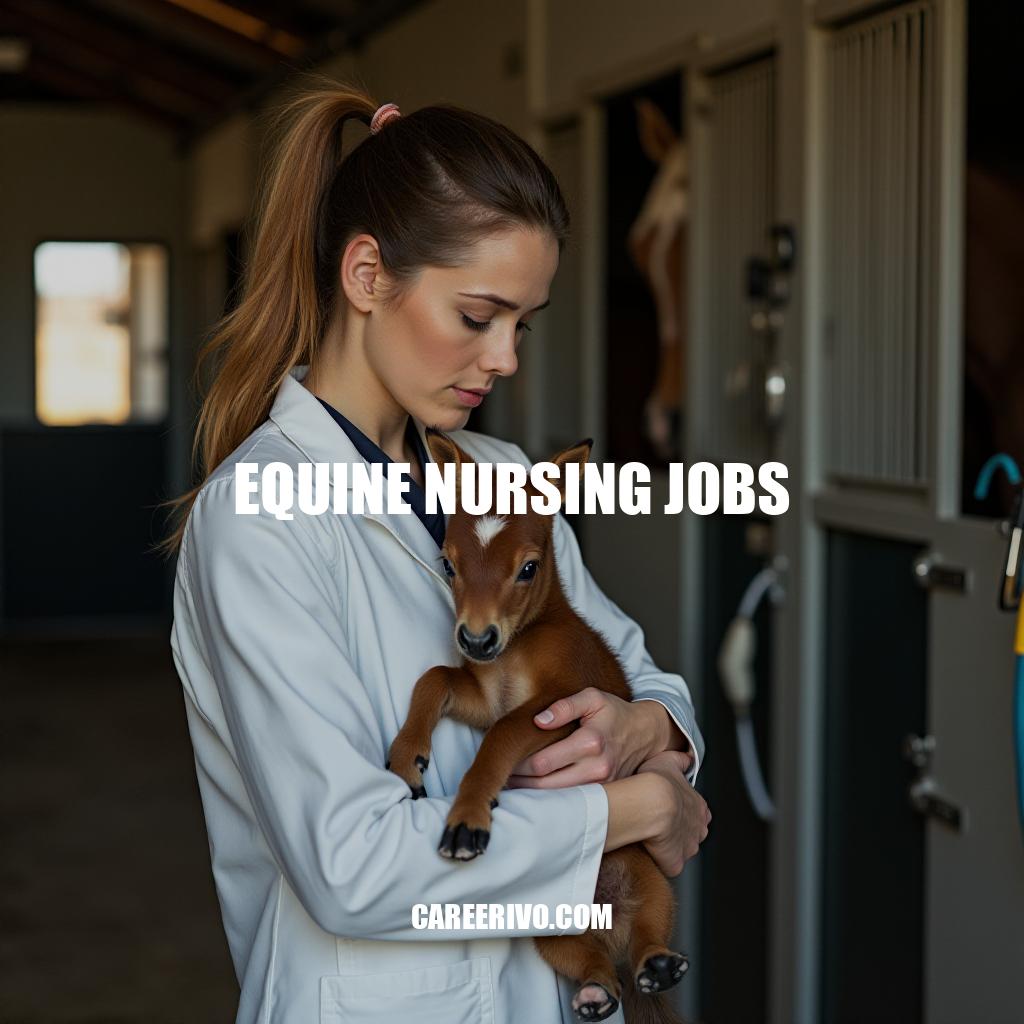
Equine nursing is all about taking care of horses. Equine nurses work with veterinarians to give medical care, check on patients, and make sure they have what they need for treatment. They’re super important for keeping horses healthy, whether it’s for sports, breeding, or just general care.
Some of the things equine nurses do include giving medicine, helping with surgeries, checking horses’ health regularly, and dealing with emergencies.
They also do tests to figure out what’s wrong, help with rehab plans, and teach horse owners how to take good care of their animals. To be a great equine nurse, you need to be precise, patient, and able to communicate well – they work with lots of different people.
To become an equine nurse, you usually need training in veterinary nursing or something similar, plus extra study on horses. Many people get certified or do degree programs that focus on horse anatomy, diseases, and surgery.
Hands-on experience is also really helpful to learn the ropes.
There are lots of job opportunities for equine nurses – they can work in hospitals, rehab centers, breeding farms, and sports organizations. As veterinary medicine gets better, there’s a growing need for skilled equine nurses who care about animal health and welfare. It’s a rewarding career that makes a big difference.
Core Responsibilities and Required Skills
Key duties performed in equine nursing jobs involve diverse responsibilities aimed at ensuring the health and well-being of horses. These duties include:
-
Assisting Veterinarians: Equine nurses provide support during veterinary procedures such as surgeries, diagnostic tests, and examinations. They prepare equipment, manage the horse to ensure safety during procedures, and assist in administering treatments as directed by veterinarians.
-
Administering Treatments: They are responsible for delivering prescribed medications, applying bandages to injuries, carrying out wound care, and following treatment plans.
This may involve tasks such as intravenous medication administration or post-operative care.
-
Monitoring Equine Health: Regular observation of horses to detect early signs of illness or injury is critical. Equine nurses track vital signs, monitor feeding and hydration, assess behavior and mobility, and document any changes to share with veterinary teams.
-
Handling Emergency Care: In situations where horses require immediate medical attention, equine nurses respond promptly to stabilize the animal. This can include controlling bleeding, treating shock, or assisting veterinarians in emergency surgery.
Essential skills required for equine nursing include:
-
Knowledge of Equine Anatomy: A deep understanding of horse anatomy, physiology, and medical conditions ensures effective care and accurate communication with veterinarians.
-
Proficiency in Medical Procedures: Skilled in tasks such as administering injections, dressing wounds, and managing medical equipment.
Knowledge of aseptic techniques is crucial for maintaining a sterile environment during procedures.
-
Strong Communication Abilities: Equine nurses collaborate closely with veterinary teams and horse owners. Effective communication ensures that treatment plans are understood and followed while providing reassurance and guidance to owners during challenging situations. Additionally, clear and detailed reporting to veterinarians supports accurate diagnosis and treatment.
-
Physical and Emotional Resilience: Working with horses often demands strength, patience, and the ability to remain calm under pressure, especially during emergencies or in stressful situations.
These roles and skills collectively contribute to the professional care of equines, emphasizing both the technical expertise and compassionate dedication required in equine nursing.
Equine Nursing: A Vital Role in Veterinary Medicine
Equine nursing plays a vital role in maintaining the health and welfare of horses, making it an essential career in veterinary medicine.
Equine nurses work closely with veterinarians to provide medical care, check on patients, and ensure they receive the necessary treatment for optimal recovery.
Their duties involve assisting veterinarians during procedures, administering treatments, monitoring equine health, and handling emergency care. To excel in this role, one must possess knowledge of equine anatomy, proficiency in medical procedures, strong communication skills, and physical and emotional resilience.
Equine nurses can work in various settings, including hospitals, rehab centers, breeding farms, and sports organizations. As veterinary medicine continues to advance, the demand for skilled equine nurses is growing, making it a rewarding career with opportunities for advancement through certifications and degree programs.
With hands-on experience and specialized training, equine nurses can make a significant difference in the lives of horses and their owners. Their expertise ensures that horses receive the best possible care, whether they’re involved in sports, breeding, or general care. As the profession continues to evolve, equine nursing jobs will remain essential for maintaining the health and well-being of these magnificent animals.


